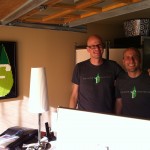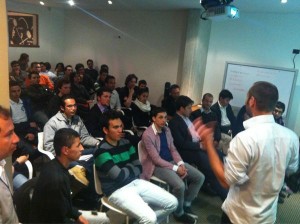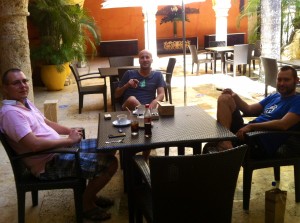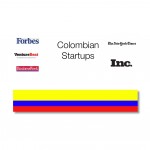Wild about Mapache Studios
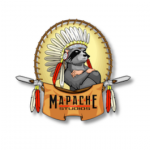 I must say; I’m excited about the launch of Mapache Studios‘ new gaming/learning platform, which will be offered for the iPhone and iPad and can be initially played on their Facebook page in a few days. Kids from 8-15 yrs. old play different games and score points that enhance their particular character called a Shamanimal. The twist is that, all the while, the player is learning a new language (in the future other subjects will be offered) such as English. Although the edutainment concept is not new, Mapache Studios is focusing on making sure the game play is up to par with other games (e.g., Angry Birds) to which children are accustomed.
I must say; I’m excited about the launch of Mapache Studios‘ new gaming/learning platform, which will be offered for the iPhone and iPad and can be initially played on their Facebook page in a few days. Kids from 8-15 yrs. old play different games and score points that enhance their particular character called a Shamanimal. The twist is that, all the while, the player is learning a new language (in the future other subjects will be offered) such as English. Although the edutainment concept is not new, Mapache Studios is focusing on making sure the game play is up to par with other games (e.g., Angry Birds) to which children are accustomed.
Though Mapache Studios is a new startup based in Colombia and has received $50k in early stage funding through Telefonica’s Wayra initiative, the principals already have experience with similar products. Two years ago, brothers Ricardo Jimenez, CEO, and Alejandro Jimenez, CTO, launched a game called Dr. Arrogant with different game dynamics, but a similar concept (e.g., learning English). They developed and launched the game in two months and spent only $300 to market it, yet, 30k users played the games in 3 months. More importantly, the game became the fastest growing game on Facebook for a few days in December 2009. This experience wetted their appetite for attacking a problem that they always saw: the stark contrast between the slow pced drudgery traditional educat\ion methodolgy and the engaging environments created by computer games.
Let’s get back to my excitement about this company. It stems not only from what they’re doing in terms of teaching kids through new and engaging learning environments, but also, from my belief in the capabilities and passion of the founders. I met Ricardo a year and a half ago after my presentation at an entrepreneur event at a local university. After talking with other entrepreneurs, I was searching for another hit of caffeine or “tinto” (black coffee) as it’s called here, when a tall, bearded youth approached me with iPad in hand to ask if he could have a word.
Within the first minute of the conversation, a number of things started to click including the vibe that Ricardo gave off as an entrepreneur. Though he seems shy at first, it’s really more like quiet yet steely determination. Now it’s time for my caveats. Firstly, it has to be said that the space that Ricardo and Mapache Studios are attacking is extremely ambitious. Secondly, I’m sure a Silicon Valley investor wouldn’t have been as “wowed” by this encounter as I was here in Colombia especially when an entrepreneur says they’ll be entering a highly competitive and tough market such as the edutainment market. Regardless, of these factors, I still am bullish on Ricardo and Alejandro’s prospects whatever the results of this initial launch may be. Their determination and ability to execute are great assets in dealing with the big challenges to come.
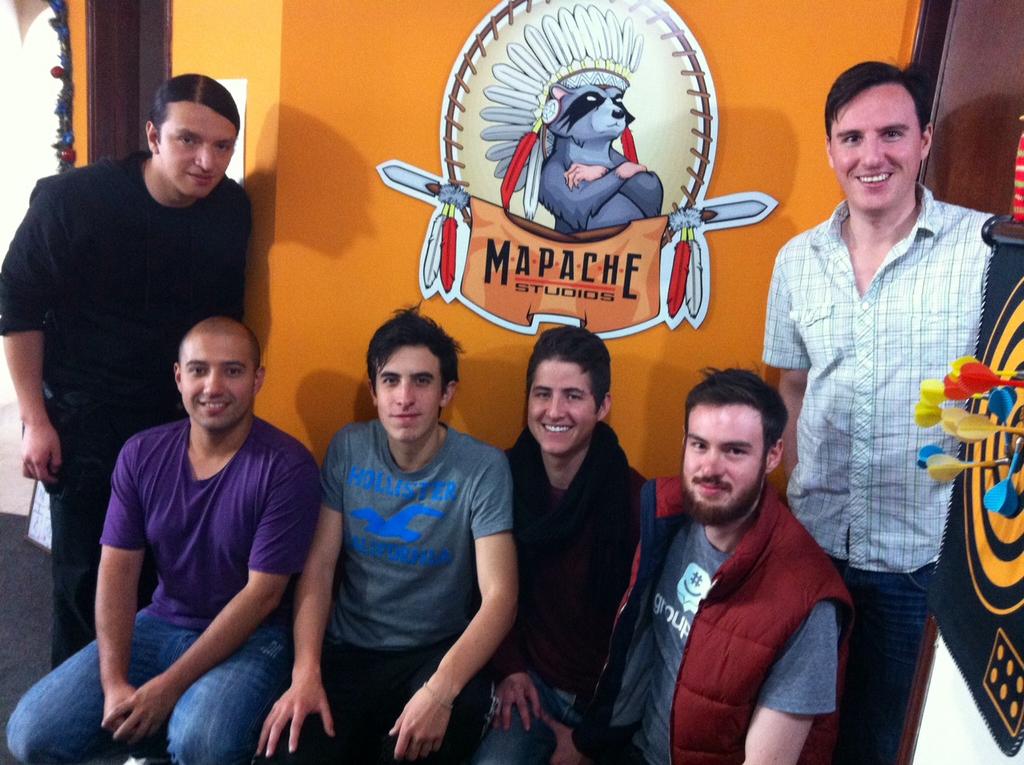 I’ve been offering my time frequently here in Colombia to many entrepreneurs looking for advice and feedback (my wife would say way too frequently). This activity rarely surpasses a couple meetings. Nonetheless, with Mapache Studios, things have been different. After a several months of meeting with the team, monitoring their progress, and providing my feedback, they requested that I become their first company adviser in exchange for some stock. I have been offered stock in the past, but rarely take it. Nonetheless, I did accept the offer and have been an engaged shareholder and adviser ever since and it’s been an extremely rewarding experience. Though they feel like they’ve learned things from me, I feel like I’ve learned so much more.
I’ve been offering my time frequently here in Colombia to many entrepreneurs looking for advice and feedback (my wife would say way too frequently). This activity rarely surpasses a couple meetings. Nonetheless, with Mapache Studios, things have been different. After a several months of meeting with the team, monitoring their progress, and providing my feedback, they requested that I become their first company adviser in exchange for some stock. I have been offered stock in the past, but rarely take it. Nonetheless, I did accept the offer and have been an engaged shareholder and adviser ever since and it’s been an extremely rewarding experience. Though they feel like they’ve learned things from me, I feel like I’ve learned so much more. 
There have been two big changes in direction (I just didn’t want to use that ¨P¨word – pivot – ouch) and a lot of little decisions (some bigger ones) where having a sounding board was useful to these passionate entrepreneurs. Aside from the original investment, the company has also been granted over $150k from the Colombia government to make their vision a reality and they are one of the companies we’re working with at Socialatom Ventures.
I admit that Alejandro and Ricardo (first and second from the right, in the photo, respectively) are really reaching for the stars and they’ll probably either be immensely successful or crash and burn (binary outcome), but these are the types of entrepreneurs I rarely see in Colombia (with the exception of VivaReal’s founders who I started to write about three years ago). It’s a risky bet, but I think we’ll be hearing more and more about Mapache Studios and, particularly, Ricardo and Alejandro Jimenez in the future.

